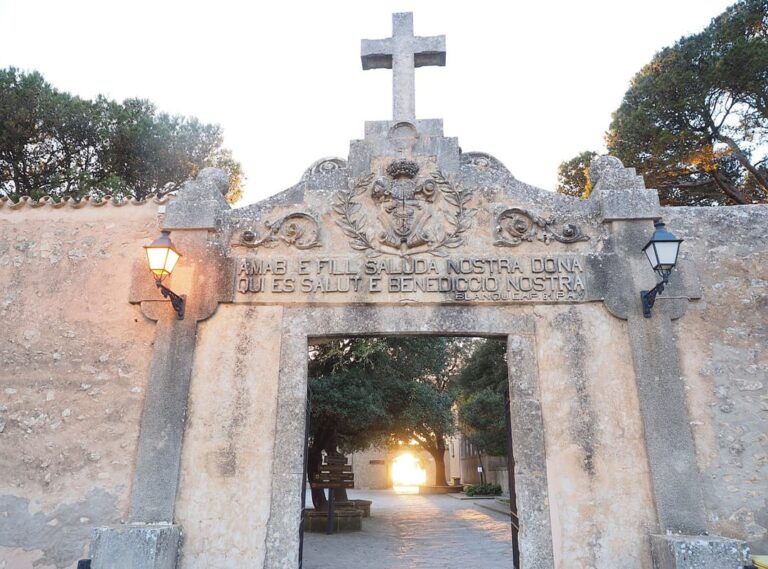The Statute of the Franciscans is a fundamental document that outlines the guiding principles and regulations of the Franciscan Order. Established by Saint Francis of Assisi and refined over centuries, this statute is crucial for understanding the Order’s commitment to its spiritual and social mission. It provides a framework for living out the Franciscan ideals of poverty, humility, and service. This article delves into the essence of the Franciscan Statute, its historical development, and its impact on the Order’s members and the wider community. The devotion to our lady of Czestochowa statue, symbolized by the revered statue, offers a broader perspective on how sacred symbols and values influence the Franciscan way of life.
The Foundations of the Franciscan Statute
- Origins and Development
The origins of the Franciscan Statute can be traced back to the early days of the Order when Saint Francis of Assisi sought to establish a rule that would guide the lives of his followers. The first set of guidelines, known as the “Regula Non Bullata,” was approved by Pope Innocent III in 1209. This was later replaced by the “Regula Bullata” in 1223, a more detailed and formalized version. The Statute has evolved over time, reflecting the Order’s growth and adaptation to changing circumstances while remaining true to the core principles established by Saint Francis. - Core Principles
The Statute is built on several core principles that define the Franciscan way of life:- Poverty: Members of the Order are committed to living a life of voluntary poverty, forsaking personal wealth and possessions in favor of complete reliance on God’s providence.
- Humility: Humility is central to Franciscan spirituality, emphasizing the need to live in a spirit of meekness and service to others.
- Fraternity: The Statute underscores the importance of communal living and mutual support among members, fostering a deep sense of brotherhood and solidarity.
- Service: A commitment to serving the poor, the sick, and the marginalized is a fundamental aspect of the Franciscan mission. The Statute encourages members to engage actively in charitable and social justice work.
Implementation and Adaptation
- Daily Life and Practices
The Statute provides guidelines for the daily life of Franciscans, including prayer, communal living, and interactions with the broader community. Members are expected to adhere to these practices while integrating the Franciscan values into their daily routines. This includes participating in communal prayers, engaging in acts of charity, and maintaining a lifestyle that reflects the ideals of poverty and humility. - Governance and Structure
The Statute also outlines the governance structure of the Order, including the roles and responsibilities of various officials and the process for decision-making. This structure ensures that the Order functions effectively and remains true to its foundational principles. The Statute provides for regular meetings, elections, and accountability measures to maintain the integrity of the Order’s mission. - Adaptation to Modern Contexts
As society and the Church have evolved, so too has the Franciscan Statute. The Order has adapted its regulations to address contemporary issues and challenges while preserving its core values. This adaptability allows the Franciscans to remain relevant and effective in their mission, responding to the needs of the modern world while staying true to their spiritual heritage.
Impact on the Order and the Church
- Spiritual Formation
The Statute plays a crucial role in shaping the spiritual formation of Franciscans. It provides a framework for understanding and living out Franciscan spirituality, guiding members in their personal and communal journeys of faith. By adhering to the Statute, Franciscans cultivate a deeper connection with God and a stronger sense of purpose in their service to others. - Influence on the Church’s Mission
The principles outlined in the Statute contribute significantly to the broader mission of the Catholic Church. The Franciscan commitment to poverty, humility, and service complements the Church’s teachings on social justice and compassion. The work of Franciscans, guided by the Statute, supports the Church’s efforts to address issues of inequality and to promote the dignity of every person.
The Role of Sacred Symbols: Our Lady of Częstochowa
The devotion to our lady of Czestochowa statue, represented by the revered statue, is a powerful symbol of spiritual guidance and protection. This image of the Black Madonna is venerated for its miraculous qualities and its role in inspiring and nurturing the faithful. For Franciscans, the devotion to the Black Madonna reinforces the values expressed in the Statute—humility, service, and reliance on divine grace.
The presence of such sacred symbols in the Franciscan tradition underscores the integration of spiritual devotion with the principles of daily life. The statue of Our Lady of Częstochowa serves as a reminder of the spiritual ideals that guide Franciscans in their mission and their commitment to living out their faith in every aspect of their lives.
The Statute of the Franciscans provides a foundational framework for the Order’s spiritual and practical life. It embodies the core values of poverty, humility, fraternity, and service, guiding members in their commitment to living out the Gospel. The impact of the Statute extends beyond the Order itself, contributing to the broader mission of the Catholic Church. Sacred symbols such as the statue of Our Lady of Częstochowa enhance this spiritual journey, reinforcing the values and ideals that drive the Franciscan mission. Through their adherence to the Statute, Franciscans continue to make meaningful contributions to the Church and society, embodying the enduring legacy of Saint Francis of Assisi.











